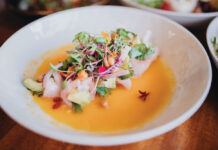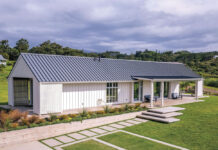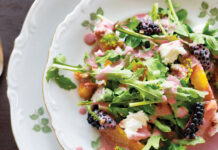Sustainability Stewards
Meet some of the businesses and community members who are making our island – and the world – a better place.
By Serene Gunnison and Ashley Probst
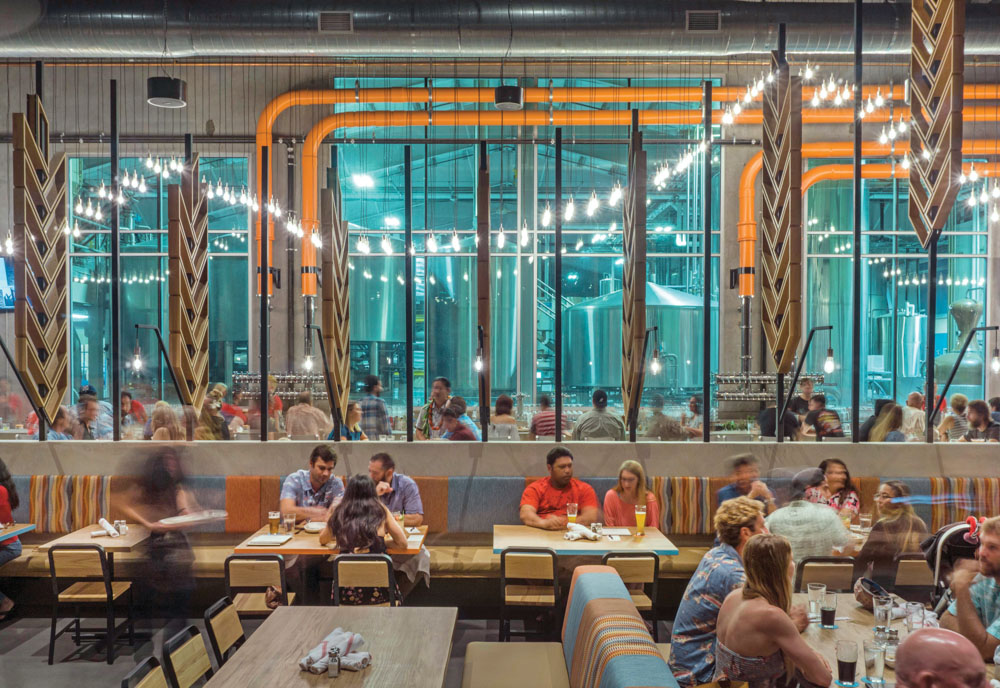
Eco-Friendly Ales
Maui Brewing Company, Kihei
Maui Brewing Company’s beers are cooled by the sun. While that might seem like an oxymoron, nearly every aspect of the brewery’s expansive operation is solar powered. Four thousand solar panels blanket Maui Brewing Company’s cathedral-like facility in Kihei, powering everything from the taproom lights to the glycol jacket technology used to cool beer temperatures during brewing.
By supplementing solar energy with Tesla batteries and biodiesel generators, Maui Brewing Company became one of the first craft breweries in the nation to reach grid independence in 2019. Reduced energy costs and lucrative tax breaks made going off-grid a savvy financial move. But beyond the economic boons, sustainability has long been embedded in Maui Brewing Company’s ethos.
Since MBC’s inception in 2005, founder Garrett Marrero has introduced numerous sustainable initiatives, including donating spent grain to local farmers for feed, using locally sourced ingredients where possible and growing yeast to reduce freight costs and emissions. Another early effort involved eliminating glass bottles in favor of aluminum cans. Because of its light weight, aluminum is easier to recycle and results in less shipping-related emissions than glass.
More recently, MBC decided to swap plastic six-pack holders with recyclable cardboard cartons. However, the most impressive and promising eco-friendly feature of Maui Brewing Company is its carbon reclamation system. CO2 is an essential component in beer. How else would brews get their delightful fizz and tiny bubbles?
Coincidentally, CO2 is a by-product of the brewing process. Rather than releasing that carbon into the atmosphere, Maui Brewing Company invested in a CO2 recovery center, which compresses and filters the gas into “high purity” carbon. MBC’s captured carbon now accounts for sixty percent of the brewery’s CO2 needs.
Looking to the future, the brewery has its sights set on one day drawing CO2 from the atmosphere to carbonate its brews, soda lines and effervescent hard seltzers. In the meantime, Marrero and the Maui Brewing team will continue to carve new notches into their well-worn belt of sustainability, setting the bar for what local businesses can achieve on Maui.
605 Lipoa Parkway, Kihei | mauibrewingco.com | (808) 201-2337
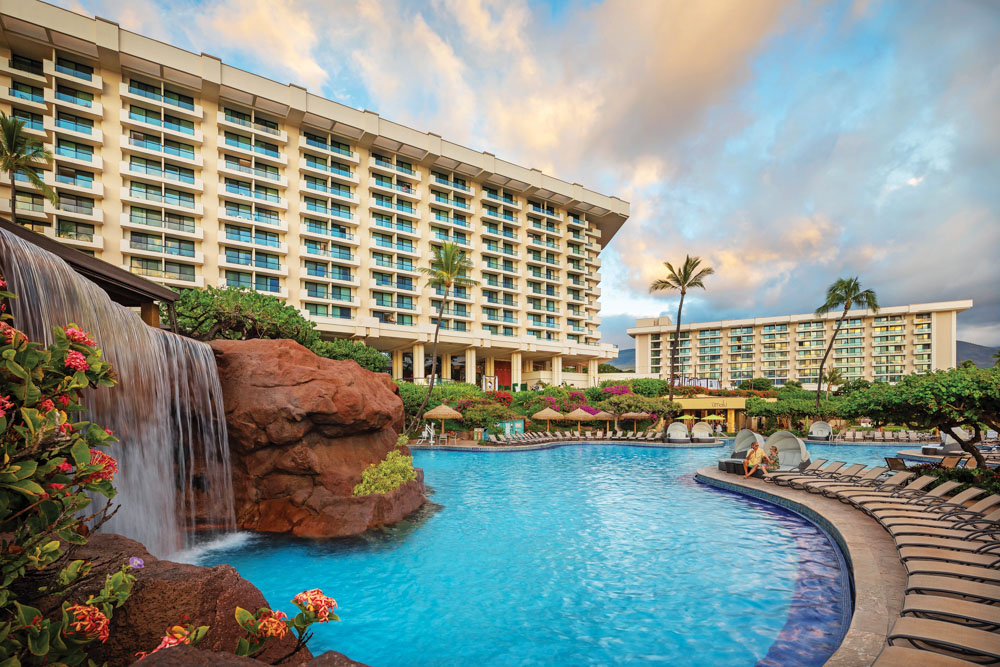
Green Getaways
Hyatt Regency Maui Resort and Spa, Ka‘anapali
Much of Ka‘anapali’s sandy three-mile strip is dotted with luxe resorts. These lofty towers harbor expansive pool areas, outstanding restaurants and experiences archetypal of a Maui visit. When it comes to sustainability, one property has been a pioneer in leading the charge.
The Hyatt Regency Maui Resort and Spa has incorporated a long list of sustainable practices into its day-to-day operations. Some involve simple swaps, like stocking guest rooms with refillable aluminum water bottles. Others are wildly more complex, tackling issues of energy, water consumption and refuse.
The Hyatt has one of the largest rooftop solar photovoltaic systems in Hawai‘i, which produces enough electricity to power 2,144 homes for a year. To curb water use, the resort installed advanced pool filtration systems and high-efficiency shower heads. And by adopting dynamic recycling practices and favoring purchases with eco-friendly packaging, Hyatt Maui has reduced its landfill-bound waste output by 37 percent.
As a result, the Hyatt is one of only two Leadership in Energy and Design (LEED) Gold-certified resorts in the state. To earn LEED certification, a project collects points by complying with requisites that address emissions, waste, water, energy and indoor environment quality.
While most of Hyatt’s sustainable practices happen behind the scenes, evidence of the resort’s green efforts is scattered throughout the property. Guests can take a self-guided sustainability tour to learn more about Hyatt’s eco endeavors – and be reminded that sustainable tourism on Maui is shifting from chimera to reality.
200 Nohea Kai Dr., Lahaina | hyatt.com | (808) 661-1234
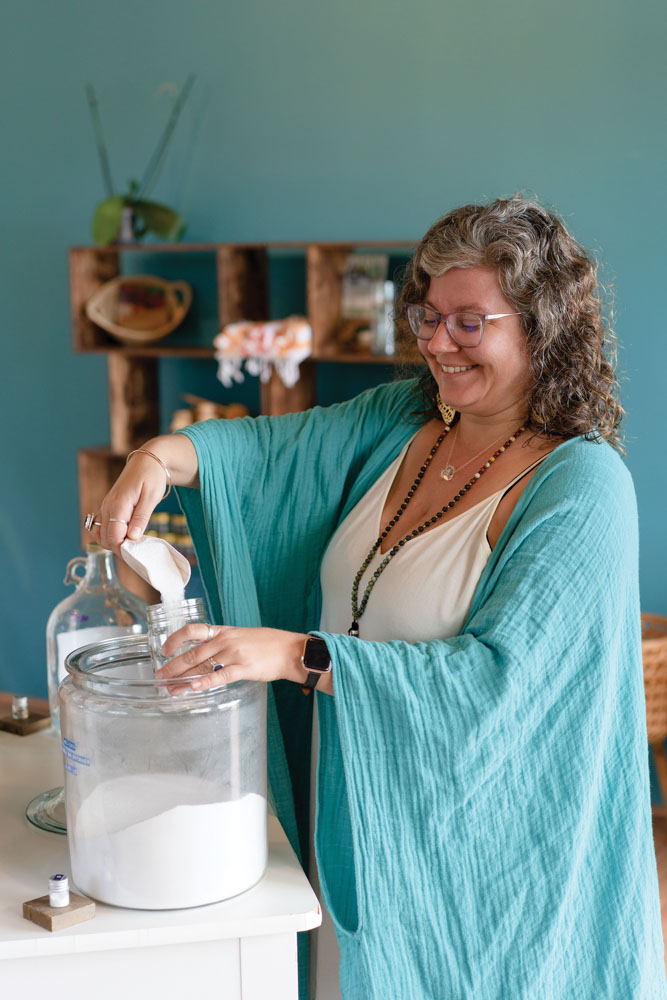
Plastic-Free Made Easy
Zero Waste Hale, Ha‘iku
In today’s modern world, plastic seeps into every area of our lives. The average American discards over 280 pounds of plastic annually, and for many, the deluge seems unavoidable. But Ashley Bowman of Zero Waste Hale is determined to show people the light.
Bowman’s airy shop in Aloha ‘Aina Center in Ha‘iku is stocked with practical alternatives to our plastic-ridden lives, like dish soap cubes, toothpaste tablets and shampoo bars. The space also includes an “Eco-Refill Bar,” where customers can fill reusable containers with non-toxic home cleaning products rather than buying them in plastic receptacles.
The overarching goal of Bowman’s zero-waste shop isn’t to push consumers toward a 100 percent zero-waste lifestyle but rather inspire the Maui community to cut back where they can. “This is all about progress versus perfection,” Bowman said. “I’m just trying to help people be more mindful and really think about their purchases.”
810 Kokomo Rd., Ha‘iku zerowastehale.com | IG @zerowastehale
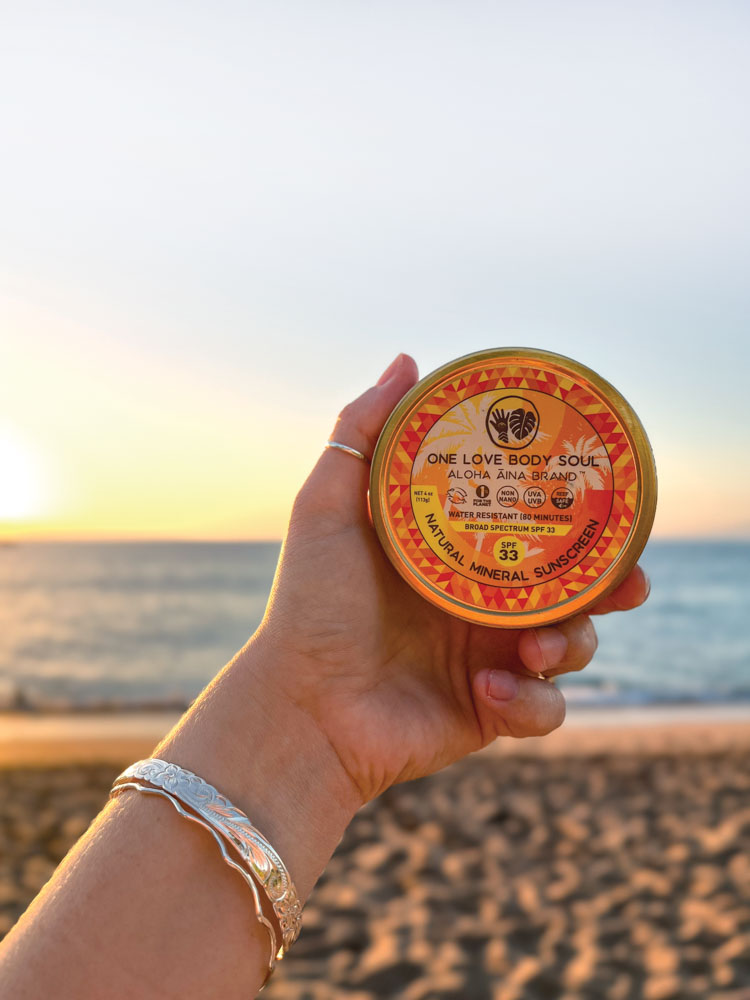
Soulful Sunscreen
One Love Body Soul, Ha‘iku
Chaos theory says that a small, seemingly insignificant event can create a chain reaction that dramatically influences the future. For Erin Elizabeth, founder of One Love Body Soul (OLOVE), that moment came nearly a decade ago when marine researchers announced an unsettling discovery.
In 2015, a team of international scientists released a study concluding oxybenzone, a common ingredient in sunscreen, can cause death and DNA damage in corals. The news pushed Erin – a passionate water woman who had begun to notice coral decline on Maui – to add reef-safe sunscreen to her budding organic skincare line, OLOVE.
Since releasing her first batch of sunscreen, One Love has grown exponentially. Retailers around the nation now carry OLOVE’s plastic-free products. Yet, despite her brand’s success, Erin never lost sight of her objective: ocean conservation. More recently, Erin’s passion for the sea has steered her into the political realm.
Erin was instrumental in helping pass Ordinance 5306, which prohibits the sale, use and distribution of non-mineral sunscreens in Maui County. The ordinance took effect on Oct. 1, 2022. Erin also helped to pass a similar bill on Hawai‘i Island and is now working with legislators on O‘ahu. “The point of it all is preservation,” Erin said. “Using mineral sunscreen will help preserve what little coral we have left.”
For a complete list of retailers, visit onelovebodysoul.com.
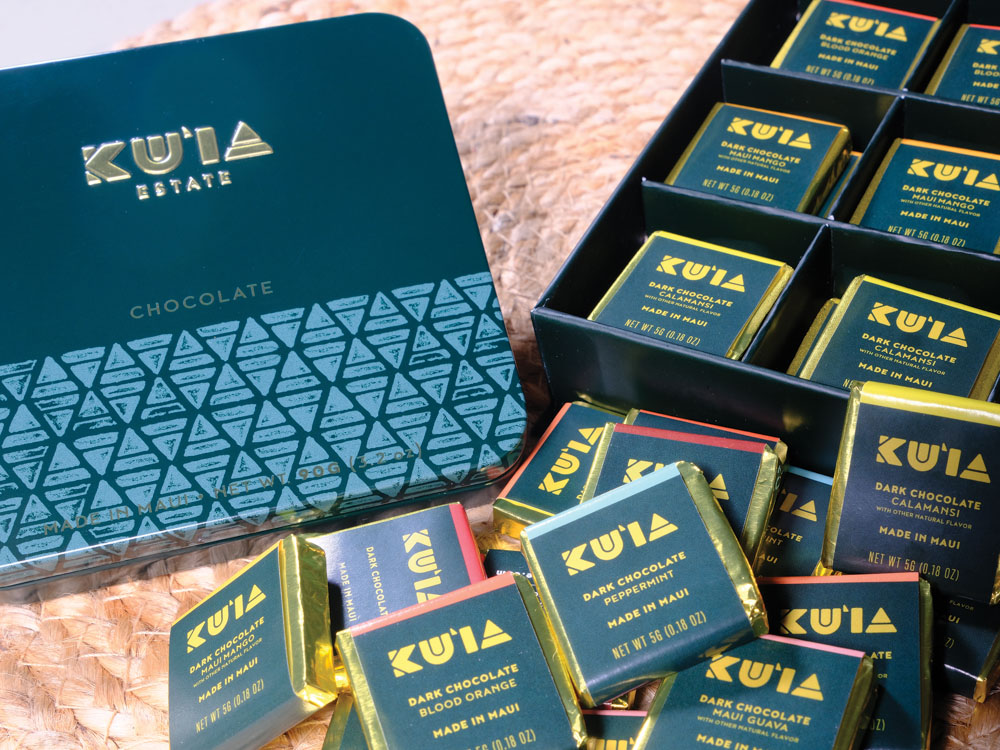
Sweet Sustainability
Maui Ku’ia Estate Chocolate, Lahaina
Owning and operating the largest chocolate factory in Hawai’i sounds like a sweet gig, though it wasn’t the original plan for Gunars Valkirs, CEO of Maui Ku‘ia Estate Chocolate. After moving to Maui for retirement, Valkirs decided to take up cacao farming as a hobby on 20 acres of open plain in the ahupua‘a (Hawaiian land division) of Ku‘ia. He quickly discovered the only way to maintain a viable farm would be to make and sell chocolate.
In addition to a community-focused business model, Maui Ku‘ia Estate Chocolate uses clean energy, zero-waste farming practices, and eco-friendly packaging. “We’re off-the-grid here,” Valkirs said. “Making chocolate is a power-hungry business, so if you’re not generating your own energy, then it’s not clean when it’s all fossil fuel-generated and that’s a problem.”
The hot Lahaina sun powers the factory during the day while Tesla batteries are charged to store the energy and keep things running at night and on the occasional cloudy day. When it comes to farming the cacao, everything gets returned to the soil. If trees need to be removed, the wood is chipped and redistributed as mulch, while the husks and cacao shells are thrown back into the field to decompose naturally. “There’s certainly no trash, no waste coming out of the farm,” Valkirs said.
Additionally, the company’s best-selling 5-gram pieces are packaged with sustainable materials: paper, wax and foil covering the chocolate piece – all of which can be composted.
And we can’t forget about the award-winning product within. “We do make world-class chocolate, it’s already been proven,” Valkis said, referencing accolades like the 2021 Cocoa of Excellence Gold Award, the 2022 Good Food Award and the 2022 ‘Aipono Award for Excellence in Sustainability.
78 Ulupono St., Lahaina | mauichocolate.com 844-844-KUIA (5842)
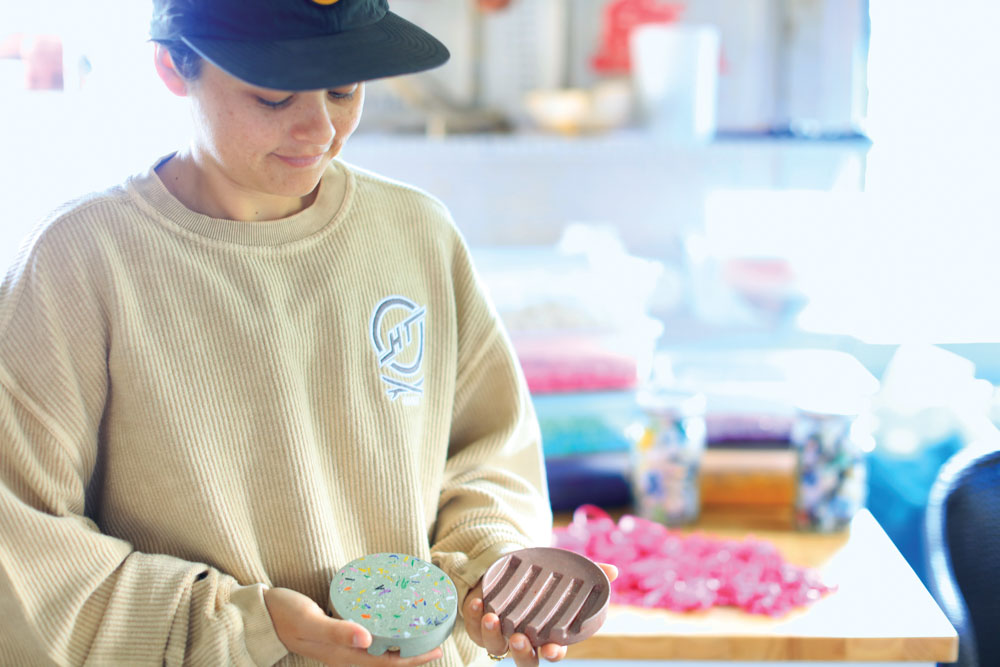
Upscale Upcycling
Michi.CO, Lahaina
Plastic is notoriously harmful to the environment, but local business owner Michiko Smith is turning this infamous material into something beautiful and sustainable. “Recycling here is so trash,” Smith said of Maui’s infrastructure. But instead of simply hoping for a new recycling center to open, she applied her environmental science degree and created Michi.CO sustainable home decor. The original collection features soap dishes, trinket trays, incense holders and vases – all of which are made using upcycled plastic.
According to the Hawai‘i Wildlife Fund, up to 20 tons of marine trash washes up on our coastlines annually, and 96 percent of it is plastic. Innovative businesses like Michi.CO are working to mitigate our plastic pollution problem.
The plastic she uses is sourced from local people, beaches and two Lahaina-based businesses. This includes milk jugs and other No. 2 plastics from Nagasako General Store and bottle caps, (No. 4 plastics), from Choice Health Bar. Smith sorts the plastics by color, removes any stickers, cleans and dries each piece, and then puts it through a shredder machine up to 10 times.
The plastic pieces in Michi.Co’s collection have been mixed with cement, but Smith recently acquired a new machine that now allows her to manufacture products using 100 percent plastic. This change is necessary to keep up with the high volume of plastic that she accumulates. Once this transition is complete, production will be geared toward making filament for 3D-modeled pieces.
The original Michi.CO collection can be found online and at zero-waste stores like Ho‘olawa Maui in Napili, Rooted in Wailuku, Zero Waste Hale in Ha‘iku, Choice Health Bar, Westside Vibes, Manakai Swimwear, the Hawai‘i Wildlife Discovery Center in Lahaina and The Monarch Collective in Makawao.
michicodecor.com
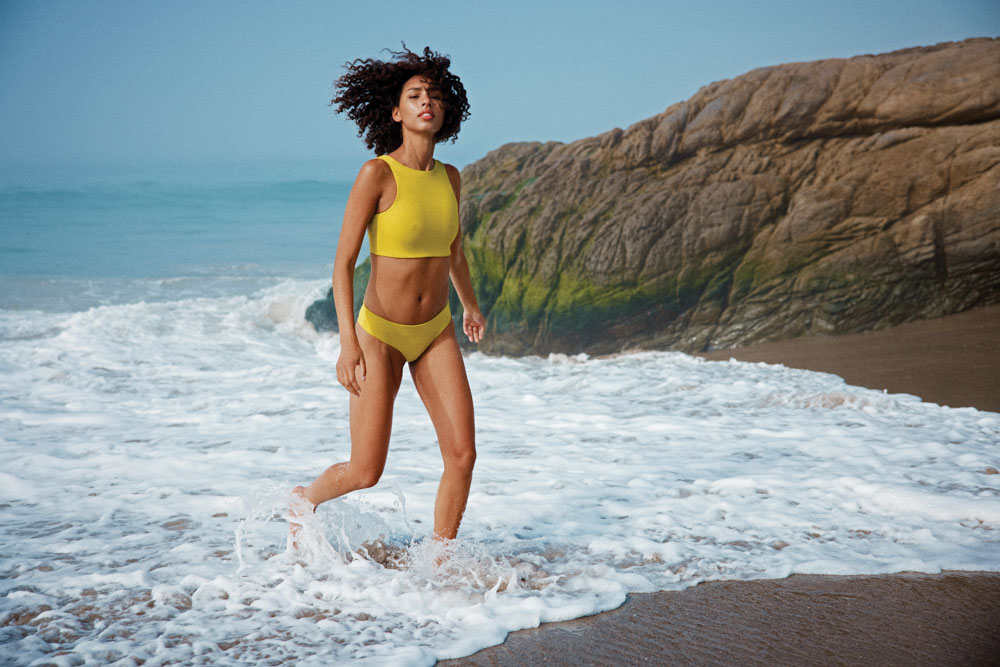
Low Footprint Fashion
Dos Gardenias, Pa‘ia
Take a deep dive into the world of “fast fashion,” and you’ll quickly be met with a barrage of alarming statistics, from excessive water use to exorbitant pollution output. The good news? Not all fashion is inherently bad for the planet. Some brands are taking meaningful steps to become stewards of the environment.
Brighdie Grounds and Dorothy Day, founders of Dos Gardenias luxury swimwear, are making a name for themselves as luminaries in the sustainable fashion world. Since 2020, Dos Gardenias swimwear has been made with ECONYL, regenerated nylon constructed from waste like fishing nets and industrial plastic. ECONYL is infinitely recyclable and massively reduces carbon emissions and crude oil use when compared to conventional nylon. The fabric is also fortuitously perfect for swimwear: stretchy, soft and chlorine resistant.
Beyond their fabric swap, Grounds and Day are steadfast in reducing Dos Gardenias’ carbon footprint. “From our packaging to our tags, really everything is sustainable,” Grounds said. “If there’s a sustainable approach, we take it.” In other products, the pair uses materials like 100 percent cotton and neoprene made from limestone rather than petroleum.
In addition to their sustainable business practices, Grounds and Day work with like-minded nonprofits, including GLAM4GOOD, Waves 4 Water and Maui-based coastal clean-up organization, Love the Sea. Fashion lovers can shop the sleek, sustainable collections at the Dos Gardenias Pa‘ia store, located at 106 Hana Highway.
106 Hana Highway, Pa‘ia | Open daily, 10 am-5 pm dosgardenias.com | (808) 856-0211
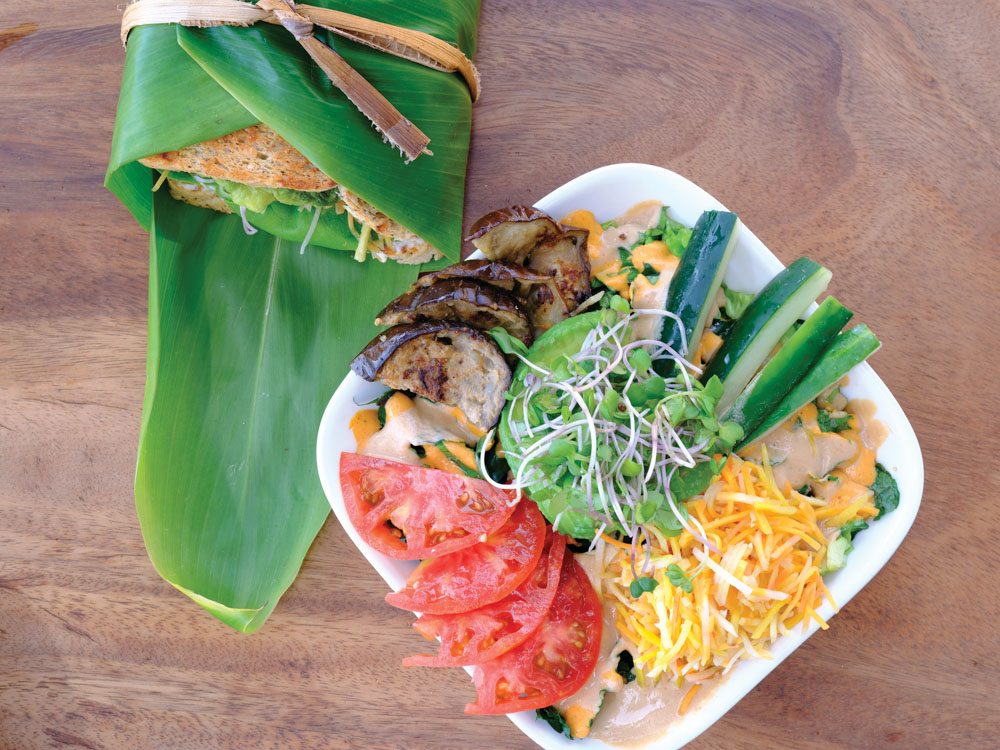
Zero Waste & Plant-Based
Moku Roots, Lahaina
Sustainability is woven into the core of Moku Roots, a zero-waste vegan and vegetarian restaurant in Lahaina. Five years after its opening, Moku Roots remains the only zero-waste restaurant on Maui, highlighting both the utilitarian and nutritional power of plants.
The eatery’s plant-based menu prioritizes locally sourced ingredients, including produce from its own farm in Launiupoko. This is where all the restaurant’s kale and collards are grown, in addition to herbs, bananas, papayas, avocados, ‘ulu and occasionally taro – though many items are outsourced from other local farmers to keep up with demand.
When deliveries arrive, any packaging is reused or repurposed. All the compost created at the restaurant goes back to Moku Roots’ farm, for a true farm-to-table-to-farm cycle. On the consumer end, the restaurant doesn’t offer single-use takeout containers or utensils. Instead, to-go sandwiches and other handhelds are wrapped in ti leaves and banana husks, while other dishes can be taken home in a metal tin for a refundable $10 deposit.
There’s also eco-friendly retail items available: reef-safe sunscreen, metal straws and bulk food items like beans, quinoa, or hot sauce.
When looking toward the future of this eco-conscious company, owner Alexa Caskey has big plans. One plan already in motion is the acquisition of a second farm in Kula, which will give the restaurant more control over its supply chain.
“We’ll be putting into action regenerative farming practices, which I’m really passionate about,” Caskey said. “And hopefully get it to where we’re sourcing almost 100 percent of our produce from ourselves.”
A second restaurant is also in the works and is slated to be more than twice the size of the Lahaina location. The space in Kahului will include a rooftop garden and dining, as well as solar panels to generate power for the property.
335 Keawe St., #211, Lahaina | mokuroots.com | (808) 214-5106
Click here to subscribe to Maui Nō Ka ‘Oi Magazine



